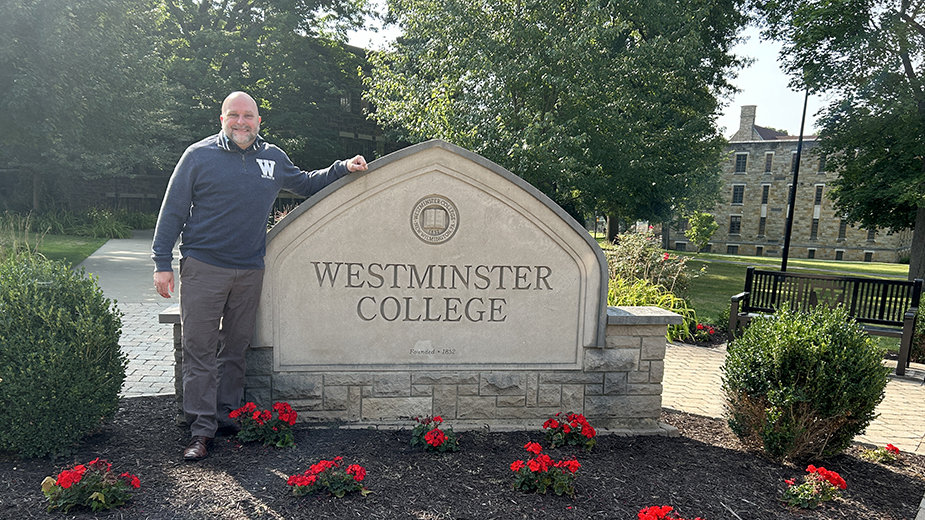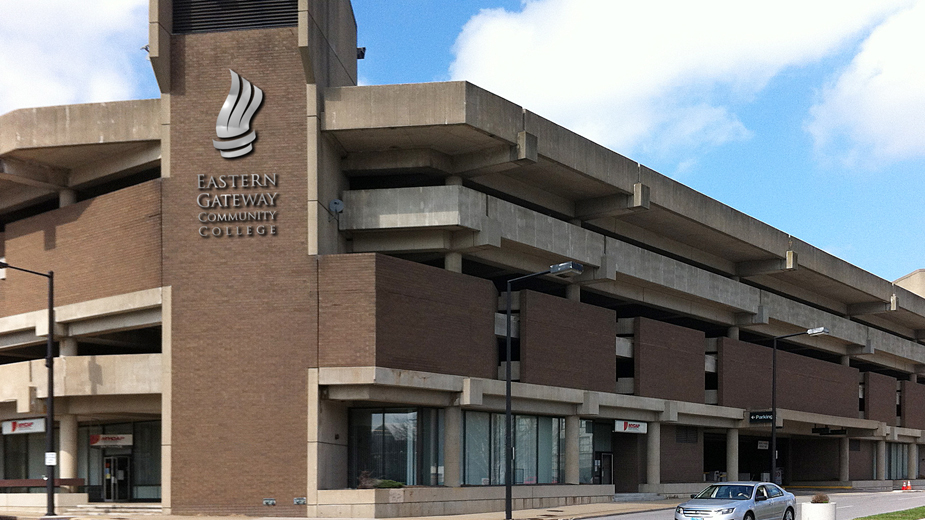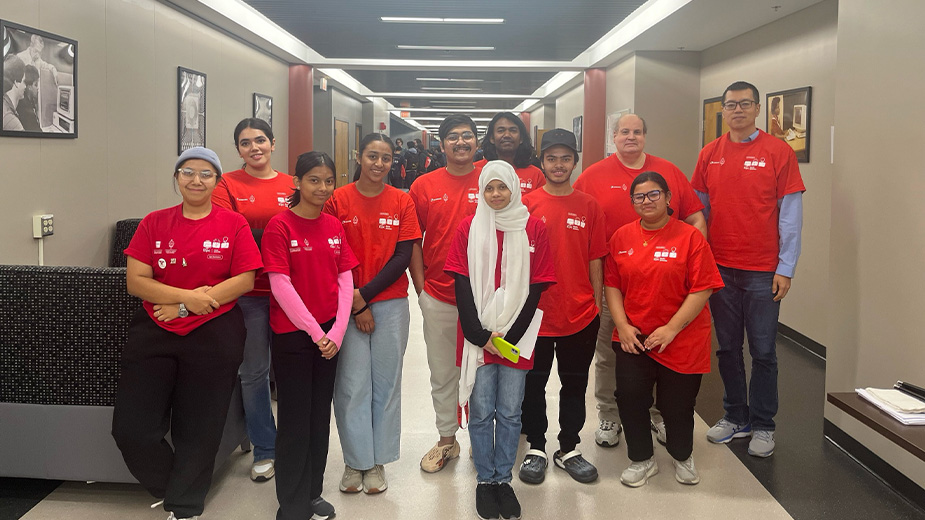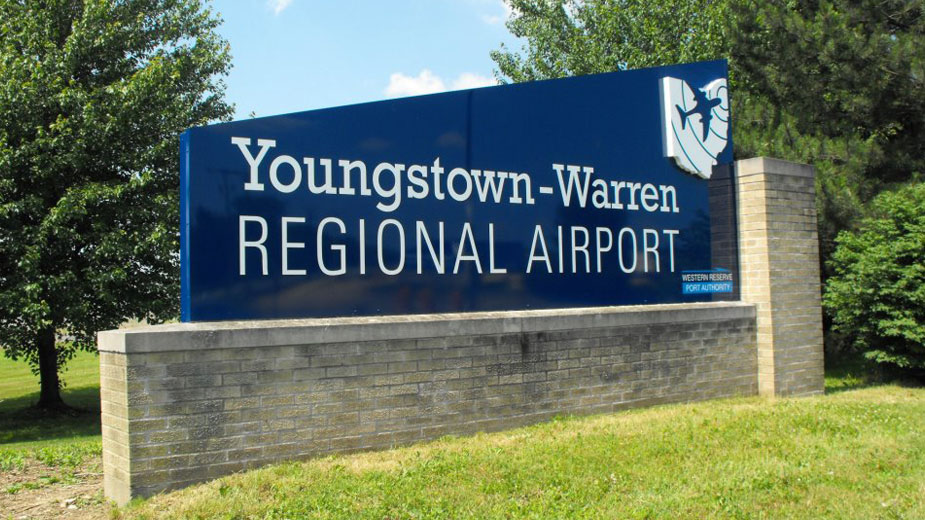New Programs Greet Returning College Students
YOUNGSTOWN, Ohio – Students at Mahoning and Shenango Valley colleges and universities are seeing additional programs and some campus improvements this fall.
Westminster College in New Wilmington, Pa., added two microcredentials to the two it started last year. The college’s new nursing simulation lab is debuting this semester too.
Youngstown State University added about 50 new associate and certificate degree programs this fall. They range from online options including an associate in applied business in accounting and a certificate in advertising to in-person options that include an associate degree in applied science in nursing and a certificate in medical assistant.
And at Thiel College in Greenville, Pa., students have two new programs this academic year.
“Our Department of Communications Media created a new communications media major,” Thiel spokesman Dominick DiRienzo says in an email.
Thiel’s Arthur McGonigal Department of Business Administration and Accounting developed a health care administration major.
The playing surface at Alumni Stadium at Stoeber Field was replaced and the first phase of a multimillion-dollar project is ongoing at the Daniel & Dorothy Spence Academic Center
Enrollment Projections
Although fall enrollment numbers aren’t available yet, area college and university officials are optimistic.
“Our applications and our admissions compared to this time last year [has increased by] 2,000 and climbing,” says YSU President Bill Johnson.
Some of that increase may be attributable to the closure of Eastern Gateway Community College, which paused enrollment after the spring 2024 semester and will dissolve in October. To serve those who formerly attended the only community college that was in the Mahoning Valley, YSU established the new associate, credential and certified programs.
It also plans to open a campus in Steubenville, where Eastern Gateway was headquartered, although that won’t happen this fall.
Microcredentials
The two new microcredentials at Westminster – art therapy and professional writing – join criminal justice and data analytics, which were offered beginning last year.
Jamie McMinn, dean and vice president for academic affairs, says Westminster began offering microcredentials as a way to help students promote their marketable skills for internships, employment and graduate studies.
“They are ways for students to demonstrate that they have achieved learning and skills in focused areas (e.g., professional writing) that are in high demand,” McMinn says. “Microcredentials also can be rewarding in that they will lead to digital certificates that students can post on their social media accounts, résumés, etc. These rewards can incentivize continuation into a minor, a major and to an undergraduate degree.”
When he first introduced the idea of microcredentials, he says his goal was student focused.
“In the traditional college experience, students must wait four years before their degree is conferred,” says McMinn, also a psychology professor. “That is a long time to wait, especially when they are learning so much and able to demonstrate many great skills. The microcredential can be conferred as soon as it is earned, which means that students can begin promoting their verified skills and knowledge well before graduation.”
New Programs at Thiel
Thiel Dean and Vice President of Academic Affairs Greg Q. Butcher, says in a news release that the college sees tremendous career opportunities in health care administration in the region.
“The largest nongovernment employer in Pennsylvania is headquartered in Pittsburgh,” he says. “UPMC employs about 100,000 people in addition to the 5,000 doctors on its roster, while the Allegheny Health Network, also in Pittsburgh, employs another 21,000 people. Thiel graduates will be ready to step into this growing field immediately.”
The health care sector is one of the country’s fastest-growing industries, Butcher says.
“Our program is designed to produce graduates who are not only knowledgeable but also adaptable and ready to lead,” he says.
Through the new communications media major at Thiel, students will be connected to the alumni network of media professionals.
“The new communications media major will open career paths in advertising, marketing and social media as well as traditional and new media,” Butcher says in another news release. “Thiel’s program also sets a solid foundation for students planning for post-graduate studies. Our faculty members give students one-on-one attention and mentoring and students in the major will have access to industry-wide contacts through the college’s alumni network.”
Different Approach
While some colleges and universities offer microcredentials as a way for nontraditional students to upskill or reskill, that’s not Westminster’s initial focus.
“Right now, our focus is on a traditional undergraduate student as a way of attracting and retaining them,” says McMinn. “Because if you can get this microcredential, you’re just a few courses away from a minor. So keep at it. It’s a way for persistence.”
It’s also a way for students to demonstrate marketable skills.
“But moving forward, [we’re working] with our employer partners in the community to identify what kind of upskilling their employees might need,” he says.
Both data analytics and professional writing are skills employers indicate employees need. The microcredential programs were identified based on student interest and market need.
“What we need to do is move to a format that will be amenable to working adults,” McMinn says. “They’re not going to come here to take three classes, for example. If we can take those classes to them or some kind of experience, or if they were online, that’s going to be more valuable to the employer.”
That’s being developed. For traditional students, however, the micro-credentials may enhance the degree they’re pursuing.
Art therapy, for example, could be useful to a student studying psychology. The microcredential, generally 12 credit hours and experiential learning, is also a way for a student to try something out before committing four years.
Data analytics too, is embedded in mathematics or computer science and professional writing is a complement to any major but also aligns to an English degree, the dean says.
“Many of them are embedded either directly or indirectly to help students keep moving up,” he says.
Besides college trustees and employer partners, the college also worked with its board of distinguished visitors in developing the microcredentials.
President Kathy Brittain Richardson established the Westminster College Board of Distinguished Visitors soon after taking office.
“It’s a nongoverning body of people from the community, business leaders,” McMinn explains. “They may be alumni. They may not, but basically, they are our finger on the pulse of what’s happening in the larger business and political environment.”
That advisory body recommended, and the college adopted, the requirement that a student earn at least a B- in each course and experiential learning to receive the microcredential.
Other microcredentials likely will be added in the future.
“The faculty are working on additional microcredentials, collaborating with student affairs and other divisions of the college,” McMinn explains.
A leadership microcredential is being prepared, recognizing that students develop many leadership competencies in academics, student life and athletics.
So far, the response to the new offerings has been positive.
“We are early in the process, and students are beginning to take advantage of microcredentials,” the vice president for academic affairs says. “The faculty have been enthusiastic about new microcredentials, and external stakeholders are also very interested in them. We want to continue being a great partner to our community, which includes the many great companies in western PA and eastern Ohio.”
Pictured at top: Jamie McMinn, dean and vice president for academic affairs at Westminster College, stands at an entry to the New Wilmington, Pa., campus.
Copyright 2024 The Business Journal, Youngstown, Ohio.



